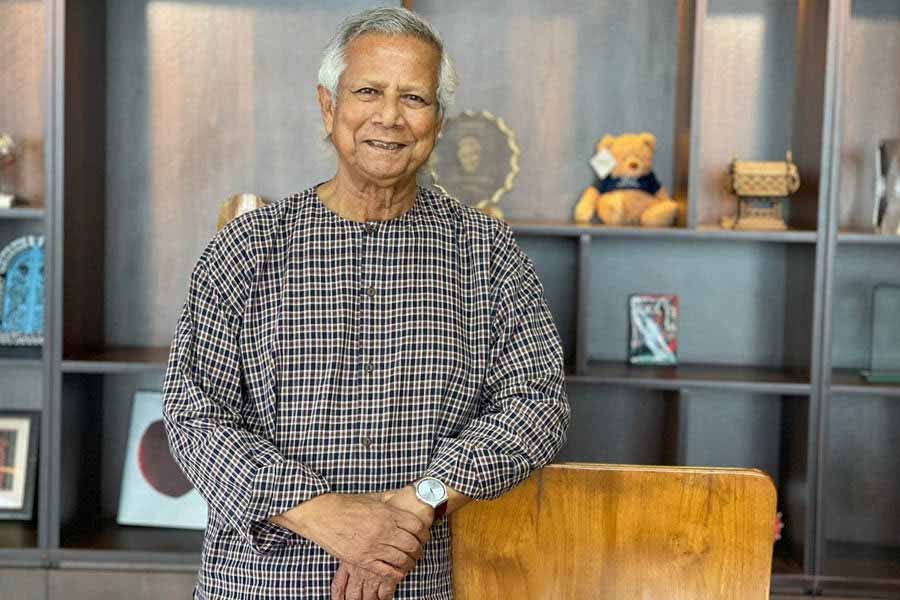Nobel Laureate Muhammad Yunus, often hailed as the father of microfinance, has long been a vocal advocate for economic empowerment and social innovation. His radical ideas challenge conventional economic models and propose a transformative vision for society. One of his most provocative assertions is that traditional jobs are a form of modern slavery and that every individual possesses inherent entrepreneurial potential.
The Concept of Job Slavery
Muhammad Yunus argues that traditional employment often traps individuals in cycles of dependency and limits their creative and entrepreneurial capacities. According to Yunus, the hierarchical structure of most jobs stifles innovation and personal growth. Employees become reliant on their employers for their livelihood, leading to a form of economic bondage.
“Jobs are a form of slavery,” Yunus has famously said. “They create a dependency where people cannot fully realize their potential because they are always working to fulfill someone else’s vision.”
This perspective challenges the widespread belief that stable employment is the ultimate goal of economic progress. Yunus points out that job security can be an illusion, especially in an era of rapid technological change and economic uncertainty. Instead, he suggests that individuals should be empowered to create their own opportunities and pursue their passions.
Innate Entrepreneurial Capacity
Yunus believes that everyone is born with entrepreneurial abilities, but societal structures and education systems often suppress these talents. From a young age, individuals are taught to seek employment rather than create their own enterprises. This mindset, according to Yunus, limits personal and economic potential.
“Every human being is born an entrepreneur. Some get a chance to unleash that capacity. Some never got the chance, remain in jobs,” Yunus explains. He advocates for a paradigm shift where education and social systems encourage creativity, risk-taking, and entrepreneurship.
The Microfinance RevolutionYunus’s work with microfinance provides a practical demonstration of his beliefs. By providing small loans to impoverished individuals without requiring collateral, Yunus has enabled millions to start their own businesses. These microloans have helped lift countless families out of poverty and fostered a spirit of entrepreneurship in some of the world’s most disadvantaged communities.
The success of microfinance underscores Yunus’s argument that with the right support, anyone can become an entrepreneur. It also highlights the potential for economic systems to be restructured to empower individuals rather than bind them to traditional employment models.
Social Business as a SolutionIn addition to microfinance, Yunus promotes the concept of social business—enterprises that prioritize social goals over profit. These businesses are designed to address social issues in a sustainable manner, reinvesting profits to further their mission. Yunus sees social business as a vehicle for unleashing entrepreneurial potential while addressing pressing societal needs.
“Social business is about creating a new civilization that is economically viable and socially conscious,” Yunus says. By combining entrepreneurial drive with social objectives, individuals can create meaningful change without being confined to traditional job roles.
Conclusion: Embracing a New Economic Paradigm
Muhammad Yunus’s vision challenges us to rethink our economic structures and personal aspirations. By viewing jobs as a form of modern slavery and recognizing the entrepreneurial potential within everyone, Yunus advocates for a society where individuals are free to innovate and pursue their passions.
This perspective calls for systemic changes in education, financial systems, and societal values. Encouraging entrepreneurship and supporting social businesses can lead to a more dynamic, resilient, and equitable economy. As we navigate the complexities of the modern world, Yunus’s ideas offer a compelling blueprint for fostering human potential and achieving sustainable development.In a world that often values job security over creative freedom, Yunus’s radical vision invites us to imagine a future where every individual has the opportunity to be an entrepreneur and contribute uniquely to society’s progress.



